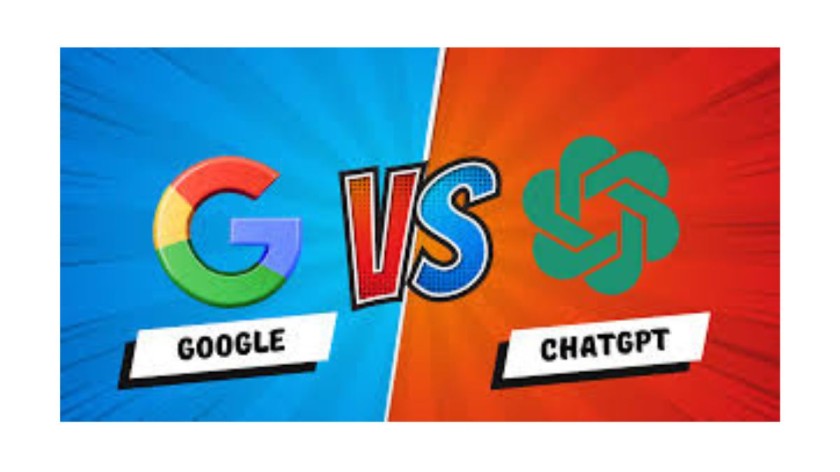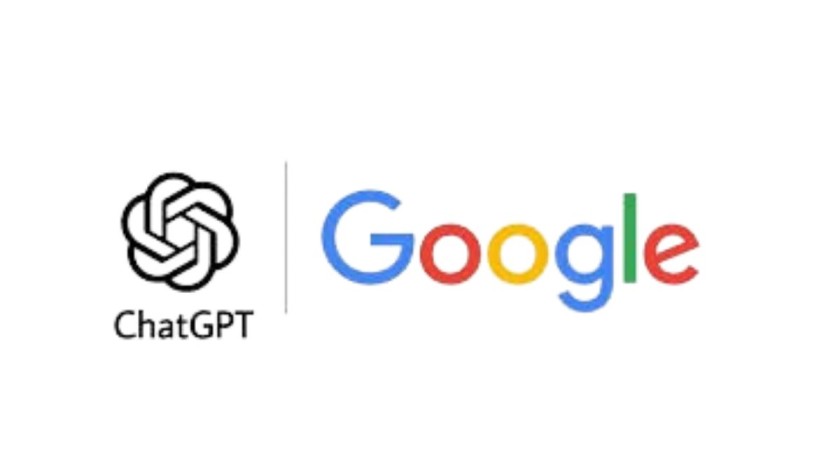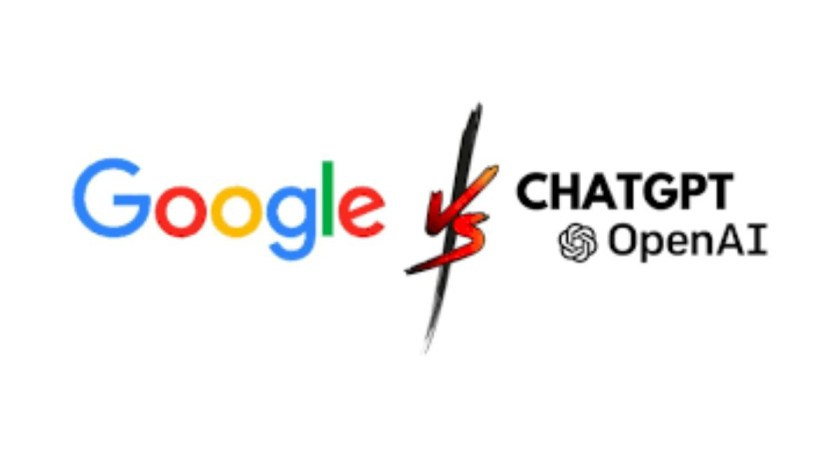Table of Contents
Introduction:
In today’s digital age, search engines have become indispensable tools for finding information quickly and efficiently. They play a crucial role in our daily lives, whether we’re seeking answers to simple questions, conducting in-depth research, or exploring new topics of interest. For years, Google Search has been the go-to platform for billions of users worldwide, renowned for its robust algorithm, vast database, and ability to deliver relevant results within seconds. Its dominance in the search engine market is a testament to its reliability and efficiency.
However, the landscape of information retrieval is evolving with the advent of advanced artificial intelligence technologies. Enter ChatGPT, an AI-powered language model developed by OpenAI, which represents a new frontier in the way we interact with and retrieve information online. Unlike traditional search engines, ChatGPT offers a conversational approach, generating human-like responses that can understand and engage in complex dialogues. This innovation introduces a unique method of information retrieval that is more interactive and personalized.
In this blog, we’ll delve into the key differences between ChatGPT and Google Search, examining their methodologies, response types, personalization capabilities, and ideal use cases. By the end of this comparison, you’ll have a clearer understanding of which tool is best suited for your specific needs, whether it’s quick searches, in-depth answers, or personalized interactions. Join us as we explore the future of search and information retrieval, and discover which platform stands out in the ever-evolving digital landscape.
What is Google Search?
Google Search is the world’s most popular search engine, handling over 3.5 billion searches per day. Launched in 1997, it uses complex algorithms to crawl the web and index pages, providing users with relevant results based on their queries. Google Search delivers a vast array of information, from websites and images to news articles and videos. Its sophisticated algorithms rank results based on factors like relevance, site authority, user behavior, and more, ensuring users receive the most pertinent information available.
What is ChatGPT?
ChatGPT, developed by OpenAI, is an advanced language model powered by artificial intelligence. Unlike traditional search engines, ChatGPT generates human-like text based on the input it receives. It can understand context, engage in conversations, and provide detailed responses, making it a powerful tool for more personalized and interactive information retrieval. ChatGPT is built on the GPT-4 architecture, enabling it to understand and generate text with a high degree of coherence and context-awareness, making interactions feel more natural and human-like.
Key Differences Between ChatGPT and Google Search:

(1) Search Methodology:
Google Search: Utilizes web crawlers, also known as spiders, to traverse the internet and index millions of web pages. It retrieves and ranks search results using a proprietary algorithm called PageRank, among other factors, that evaluates the quality and relevance of content. Google’s search results are constantly updated, reflecting the latest information available on the web.
ChatGPT: Generates responses in real-time using AI. It does not crawl the web or maintain an index of web pages but relies on its extensive training data to create answers. ChatGPT’s responses are based on patterns and information embedded within its training data, which includes a wide range of topics up to its last update in 2023.
(2) Response Type:
Google Search: Provides links to various sources, allowing users to choose the most relevant information. Results are typically concise snippets, with links to the full content. Google Search also offers specialized search results, such as featured snippets, knowledge panels, and rich snippets that provide quick answers directly on the search results page.
ChatGPT: Offers direct answers in a conversational format, often providing more detailed explanations without needing to click through multiple links. ChatGPT can simulate a dialogue, asking follow-up questions to clarify user queries and refine its responses, creating a more interactive user experience.
(3) Personalization:
Google Search: Personalizes results based on user history, location, and preferences. The primary focus is on delivering the most relevant content from a vast pool of sources. Google uses cookies and user accounts to track and predict user preferences, enhancing the relevance of search results over time.
ChatGPT: Can tailor responses based on the context of the conversation, providing a more customized and interactive experience. While ChatGPT does not track individual users or store personal data, it can adapt its responses within the scope of a single interaction to better address user needs.

(4) Use Cases:
Google Search: Ideal for quick searches, finding specific websites, and accessing a wide range of information types, including academic articles, shopping results, and more. Google excels in delivering structured data and performing tasks like calculating conversions, checking the weather, and finding directions.
ChatGPTis best suited for in-depth questions, personalized advice, and tasks that benefit from a conversational approach, such as brainstorming, learning new topics, and engaging in creative writing. ChatGPT can also assist with drafting emails, creating content, and providing detailed explanations on complex subjects.
(5) Contextual Understanding:
Google Search: Relies on keywords and search terms to deliver results. While it uses context clues and synonyms to improve search accuracy, it may not fully grasp the nuanced intent behind ambiguous queries.
ChatGPT: Excels in understanding context and nuances within a conversation. It can interpret follow-up questions and maintain context across multiple interactions, providing more coherent and contextually relevant answers.
(7) Interactivity:
Google Search: Offers a more static interaction where users input queries and receive a list of results. Users must sift through links and content to find the information they need.
ChatGPT: Engages users in a dynamic conversation. It can ask clarifying questions, respond to user feedback, and provide iterative answers, making the interaction feel more like a dialogue.
Which is Best for You?
The choice between ChatGPT and Google Search depends largely on your specific needs and preferences:

- For Quick Searches: Google Search is unparalleled in speed and breadth. Google is the way to go if you need to find specific information quickly or compare multiple sources. Its ability to provide a wide range of results instantly makes it ideal for straightforward queries and quick lookups.
- For In-Depth Answers: ChatGPT excels in providing detailed, context-aware responses. If you’re looking for a deeper understanding of a topic or need help with complex questions, ChatGPT offers a more engaging experience. Its ability to generate detailed explanations and follow-up questions makes it a valuable tool for learning and exploration.
- For Personalized Interactions: ChatGPT’s conversational style makes it ideal for scenarios where a personal touch is valuable, such as tutoring, customer support, or creative brainstorming. The interactive nature of ChatGPT can make information retrieval more enjoyable and effective for users seeking a more tailored experience.
Conclusion:
Both ChatGPT and Google Search have their strengths and unique features. Google Search remains the dominant force for quick, comprehensive searches, while ChatGPT offers a more interactive and personalized approach to information retrieval. You can choose the tool that best meets your needs by understanding the key differences and use cases. Whether you stick with the tried-and-true Google or explore the innovative ChatGPT, both platforms are invaluable in today’s information-rich world.
Final Thoughts:
In conclusion, the best choice between ChatGPT and Google Search ultimately depends on what you’re looking for in a search tool. For those who prioritize speed, breadth, and a wide array of sources, Google Search is the clear winner. However, for users seeking detailed, contextually rich interactions and personalized responses, ChatGPT offers a compelling alternative. Embrace the strengths of both platforms to enhance your search and information retrieval experiences in the digital age.
Read More- 10 Ultimate Gaming Accessories for Gamers
FAQ-
How does Google Search work?
Google Search uses web crawlers, also known as spiders, to traverse the internet and index millions of web pages. It retrieves and ranks search results using algorithms that consider relevance, authority, and user behavior, among other factors. Google updates its index constantly to reflect the latest information available online.
How does ChatGPT work?
ChatGPT generates responses in real time using AI, drawing on its training data to create answers. Unlike traditional search engines, it does not crawl the web or maintain an index of web pages. Instead, ChatGPT uses patterns and information embedded in its training data to provide contextually relevant responses.
What are the main differences between Google Search and ChatGPT?
*Search Methodology: Google Search indexes web pages using crawlers, while ChatGPT generates responses based on its training data.
*Response Type: Google Search provides links to various sources, while ChatGPT offers direct, conversational answers.
*Personalization: Google Search personalizes results based on user history and preferences. ChatGPT adapts responses within a single interaction but does not track user data.
*Use Cases: Google Search is ideal for quick searches and finding specific information, while ChatGPT excels in providing detailed, context-aware responses and personalized interactions.
Which is better for quick searches?
Google Search is better for quick searches due to its speed and the breadth of its indexed information. It can quickly provide a wide range of results for straightforward queries.
Which is better for in-depth answers?
ChatGPT excels in providing in-depth answers. It can generate detailed explanations and follow-up questions, making it ideal for complex queries and learning new topics.
Can ChatGPT replace Google Search?
ChatGPT and Google Search serve different purposes and complement each other. While ChatGPT offers a conversational and detailed approach, Google Search provides a vast array of indexed information and is better suited for quick lookups and finding specific websites.
Is ChatGPT suitable for academic research?
ChatGPT can assist with academic research by providing detailed explanations and helping to brainstorm ideas. However, for finding specific academic papers or verified sources, Google Scholar, a specialized tool from Google Search, is more appropriate.
How does ChatGPT handle complex queries?
ChatGPT handles complex queries by engaging in a dialogue with the user. It can ask clarifying questions and provide iterative answers, making it well-suited for understanding and addressing nuanced topics.
Which tool offers better personalization?
Google Search personalizes results based on user history, location, and preferences, providing highly relevant content. ChatGPT can tailor responses within the context of a single conversation, offering personalized interaction without storing personal data.
Can ChatGPT be used for customer support?
Yes, ChatGPT is well-suited for customer support due to its ability to understand context and engage in detailed, personalized conversations. It can help answer customer inquiries, provide information, and offer solutions in a natural, conversational manner.
Is Google Search still relevant with the advent of AI tools like ChatGPT?
Absolutely. Google Search remains a powerful and indispensable tool for quick searches, finding specific websites, and accessing a wide range of information. AI tools like ChatGPT complement Google Search by offering a different approach to information retrieval, especially for detailed and conversational queries.
What is the future of search engines with AI advancements?
The future of search engines will likely involve a blend of traditional search capabilities with advanced AI features. This combination will provide users with quick access to vast information and the ability to engage in detailed, personalized interactions, enhancing the overall search experience.

